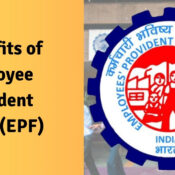Credit Card Debt: The NRI’s Worst Financial Enemy

Navigating the intricate terrain of financial management as a Non-Resident Indian (NRI) can be akin to walking a tightrope. With the complexities of handling money across international borders, grappling with the constant ebb and flow of exchange rates, and striving to achieve financial goals despite geographical distances, NRIs face a myriad of challenges. Amidst this financial juggling act, there looms a perilous pitfall that has the potential to wreak havoc on an NRI’s financial well-being — credit card debt.
In the realm of cross-border financial management, credit card debt emerges as a formidable adversary. Its insidious nature can quietly accumulate, presenting a significant threat to the financial stability of NRIs.
In this blog post, we embark on a comprehensive exploration of why credit card debt stands as the arch-nemesis of NRIs’ financial health. Through a detailed examination of the factors contributing to this financial challenge, we aim to shed light on the nuances of credit card debt and empower NRIs with the knowledge and strategies necessary to confront and conquer this formidable foe. Join us on this insightful journey as we unveil the keys to managing credit card debt and securing a robust financial future in the global landscape.
Why is Credit Card Debt a Bigger Threat for NRIs?
While credit card debt poses a substantial threat to the financial well-being of individuals worldwide, Non-Resident Indians (NRIs) grapple with a unique set of challenges that amplify the risks associated with this financial adversary. The intersection of higher interest rates, fluctuating exchange rates, limited access to financial resources, and the temptation to overspend forms a complex tapestry that NRIs must navigate cautiously.
1. Higher Interest Rates: One of the paramount challenges NRIs face is the elevated interest rates on credit cards in India compared to those in developed countries. This financial landscape sets the stage for a potentially devastating snowball effect, where even a modest outstanding balance can metamorphose into a formidable debt over time. The compounding effect of higher interest rates places NRIs at a disadvantage, requiring them to be vigilant in managing their credit card balances to avert financial catastrophe.
2. Fluctuating Exchange Rates: Navigating credit card debt as an NRI is further complicated by the unpredictable nature of exchange rate fluctuations. Repaying credit card debt from abroad entails a constant dance with currency values, and a depreciating rupee can significantly inflate the cost of the debt. The dynamic interplay between global currencies introduces an element of uncertainty, compelling NRIs to employ strategic financial planning to mitigate the impact of exchange rate volatility on their debt obligations.
3. Limited Access to Financial Resources: As NRIs find themselves entangled in the web of credit card debt, another distinctive challenge emerges—limited access to traditional debt consolidation options or bankruptcy protection available in their home countries. This financial constraint intensifies the struggle to break free from a debt spiral, necessitating innovative approaches to debt management and resolution. NRIs must explore alternative avenues and adopt resourceful strategies to regain financial stability in the absence of familiar safety nets.
4. Temptation to Overspend: The allure of credit cards, coupled with the desire to make a lasting impression on loved ones back home, exposes NRIs to the temptation of overspending. The convenience of plastic transactions, combined with the emotional connection to family and friends, creates a scenario where NRIs may find themselves indulging in purchases that surpass practical needs. Recognizing and addressing this psychological aspect of spending is crucial for NRIs to establish financial discipline and resist the allure of unnecessary expenditures.
In navigating the intricate landscape of credit card debt, NRIs must be equipped with a nuanced understanding of these challenges.
The Devastating Consequences of Unmanaged Credit Card Debt
Unbridled credit card debt is more than a mere financial hurdle—it has the potential to set off a chain reaction, leaving a trail of destruction in its wake. Whether you’re navigating the financial landscape in India or abroad, the consequences of unmanaged credit card debt can be far-reaching, touching every aspect of your financial life.
Drained Savings: Erosion of Financial Foundations
One of the most immediate and tangible consequences of uncontrolled credit card debt is the erosion of savings. As you grapple with mounting payments, your hard-earned savings become casualties of this financial battle. The ramifications extend beyond the immediate burden of debt, impacting your ability to achieve long-term financial goals. Dreams of owning a home, investing in your children’s education, or securing a comfortable retirement may slip further away as credit card debt devours the funds earmarked for these aspirations.
Damaged Credit Score: A Silent, Pervasive Impact
The repercussions of unmanaged credit card debt reverberate silently but profoundly in the form of a damaged credit score. Missed payments and high credit card utilization create cracks in the foundation of your creditworthiness, affecting your credit score. This, in turn, poses a significant hurdle when seeking loans or credit cards in the future, both within the borders of India and beyond. The global interconnectedness of financial systems means that a tarnished credit score can transcend geographical boundaries, limiting your access to essential financial tools and opportunities.
Stress and Anxiety: The Silent Torment Beyond the tangible financial toll, the weight of unmanaged credit card debt inflicts a heavy psychological burden. The constant worry about burgeoning debt levels can take a toll on your mental and physical well-being. Stress and anxiety become unwelcome companions in your daily life, impacting your ability to make sound financial decisions and diminishing your overall quality of life. The toll on your health underscores the urgency of addressing credit card debt not merely as a financial issue but as a holistic challenge that demands attention to both fiscal and mental well-being.
Understanding the devastating consequences of unmanaged credit card debt is the first step toward reclaiming control over your financial narrative. In the upcoming segments of this blog, we will delve into practical strategies and insights designed to empower you in the journey toward financial recovery. From rebuilding savings to repairing credit scores and alleviating the burden of stress, our aim is to provide you with a comprehensive toolkit for navigating the aftermath of credit card debt and emerging stronger on the other side.
Taking Control: Strategies to Tackle Credit Card Debt
Now that we’ve painted a grim picture, let’s shift gears and focus on solutions. Here are some actionable strategies to help NRIs conquer credit card debt:
1. Track Your Spending: Illuminate the Financial Landscape The journey to debt freedom commences with heightened awareness. Take the reins of your financial situation by meticulously tracking your spending. Utilize budgeting apps or create a straightforward spreadsheet to categorize and analyze your expenses. This illuminating exercise not only unveils spending patterns but also serves as a foundation for informed decision-making as you embark on the road to financial resilience.
2. Prioritize Debt Repayment: Make it a Non-Negotiable Elevate debt repayment to the zenith of your financial priorities. Allocate a substantial portion of your income explicitly towards paying off your credit card debt. By making debt reduction a non-negotiable aspect of your budget, you set the stage for a systematic and sustained effort to chip away at the outstanding balance. This deliberate commitment accelerates your progress on the path to financial freedom.
3. Explore Debt Consolidation Options: Streamline Your Repayment Consider the potent strategy of consolidating your high-interest credit card debt into a single, more manageable loan with a lower interest rate. This consolidation not only simplifies the complexity of multiple payments but also has the potential to save you money in the long run. By streamlining your repayment process, you regain a sense of control and set the groundwork for a more efficient journey toward debt-free living.
4. Negotiate with Your Credit Card Issuer: Don’t shy away from initiating a dialogue with your credit card issuer. Advocate for your financial well-being by negotiating for a lower interest rate or a more manageable repayment plan. Clearly communicate your situation, emphasizing your commitment to repaying the debt. Many credit card issuers are willing to work with you to find a mutually beneficial solution, providing a lifeline for those navigating the challenges of credit card debt.
5. Seek Professional Help: Harness Expert Guidance If the weight of debt becomes overwhelming, consider enlisting the expertise of a credit counselor or financial advisor. These professionals offer personalized guidance, helping you navigate the intricacies of debt management. From developing a customized debt repayment plan to offering insights into financial planning, their expertise serves as a valuable resource in your journey toward financial stability.
“Embarking on the journey to conquer credit card debt is a marathon, not a sprint.”
This metaphor underscores the importance of adopting a sustained, disciplined approach—a journey that requires perseverance, commitment, and the application of effective strategies. As you set forth on this financial expedition, keep in mind that success lies not just in the finish line but in the continuous progress made along the way. Here are additional insights and bonus tips tailored specifically for Non-Resident Indians (NRIs) undertaking the challenge of liberating themselves from the clutches of credit card debt.
Bonus Tips for NRIs
1. Utilize Automatic Payments: In the digital age, leverage the convenience of automatic payments to streamline your debt repayment process. Set up recurring payments to ensure that you never miss a due date, reducing the risk of late fees and maintaining a consistent stride in your marathon toward financial freedom. Automation not only adds a layer of discipline to your financial routine but also minimizes the chances of oversight, allowing you to focus on other aspects of your journey.
2. Be Wary of Minimum Payments: While minimum payments may provide temporary relief, they often serve as a deceptive snare, prolonging the debt repayment journey. Strive to exceed the minimum payment whenever possible. This proactive approach accelerates the reduction of your outstanding balance, shortening the overall duration of your debt marathon. By paying more than the minimum, you not only save on interest but also gain momentum in your pursuit of a debt-free future.
3. Consider Local Alternatives: Explore the financial landscape of your host country for credit card alternatives that may offer superior terms. Local credit card options might present lower interest rates or more enticing rewards programs, providing a strategic advantage in your quest to conquer debt. By diversifying your financial toolkit, you open avenues for optimizing your resources and potentially reducing the financial strain associated with credit card debt.
The Path Forward: A Marathon of Financial Liberation
As you navigate the marathon of credit card debt liberation, remember that every step forward, no matter how small, is a victory. Embrace the journey with discipline, commitment, and an arsenal of effective strategies. The road may be long, but with smart choices and a steadfast mindset, you can break free from the shackles of debt and carve a path toward your financial goals.
In the upcoming segments of this blog series, we will delve deeper into each bonus tip, offering practical insights and guidance to fortify your marathon journey. From harnessing the power of automation to making informed decisions about minimum payments and exploring local alternatives, our aim is to empower NRIs with the tools they need to navigate the intricacies of credit card debt successfully.
By following these tips and staying informed about your financial options, you can navigate the complexities of managing credit card debt as an NRI and secure a brighter financial future.
Stay tuned for actionable advice and a roadmap to financial liberation that extends beyond borders.




